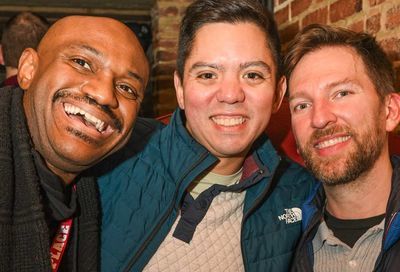A Broad Disregard for LGBT People and Families
Romney has also been under fire for the revelation uncovered by The Boston Globe that as governor of Massachusetts he rejected new birth certificates for same-sex parents.
According to The Globe, after Massachusetts legalized marriage equality in 2003, the state Registry of Vital Records and Statistics sought to revise birth certificates to include same-sex couples who have children. While the agency wanted to edit the box for the father’s name to also include the name of the “second parent,” Romney rejected the proposal
Instead, Romney, who opposed the legalization of same-sex marriage, ordered his legal staff to evaluate the birth certificate of each child born to same-sex parents. When the legal staff approved the birth certificate, only then could hospital officials and town clerks cross-out “father” and hand-write “second parent.”
The practice continued throughout Romney’s term as governor, despite warnings from a Department of Public Health lawyer who said such handwritten notations violated existing law and threatened the integrity of the record-keeping system. Indeed, speaking to an audience of South Carolina voters in 2005, Romney said of married gay couples in his state, “Some are actually having children born to them. It’s not right on paper. It’s not right in fact. Every child has the right to have a mother and father.”
For many, Romney’s actions as governor correlate to a broader disregard for LGBT people and their families.
In a 2004 meeting between then-Gov. Romney and plaintiffs in the landmark case that legalized same-sex marriage in Massachusetts, Romney allegedly remarked that he did not know same-sex couples had families. Speaking to Boston Spirit magazine earlier this year, plaintiff Julie Goodridge said that during the meeting she asked him, “Governor Romney, tell me — what would you suggest I say to my 8-year-old daughter about why her mommy and her ma can’t get married because you, the governor of her state, are going to block our marriage?”
According to Goodridge, Romney responded, “I don’t really care what you tell your adopted daughter. Why don’t you just tell her the same thing you’ve been telling her the last eight years.”
Romney has still garnered support from some LGBT voters, including the endorsement of GOProud, and the ”qualified” endorsement of LCR, which says they support Romney but will focus their efforts on congressional races. The two groups say their support for Romney does not stem from his record on LGBT rights, but Obama’s lackluster record on the economy and job creation.
Those issues also rank high among LGBT voters. According to a poll released by Logo TV in August, LGBT voters consider economic issues and unemployment to be the biggest factors influencing their vote this November. Gay rights ranked fourth in importance with 9 percent of respondents describing it as the No. 1 issue influencing their votes. Marriage equality ranked seventh with 6 percent describing it as the most important issue.
”We’ve Come Too Far to Take Steps Back”
However, those numbers do not necessarily translate into support for Romney.
According to the poll, 22 percent of LGBT voters would consider voting for Republican presidential candidate Mitt Romney if he held the same views as President Barack Obama on gay rights.
Indeed, for many gay Americans, Romney’s opposition to marriage and civil unions that guarantee the same rights and benefits as marriage are too much to swallow.
While some LGBT organizations may be supporting Romney, the nation’s largest LGBT organization, HRC, has been mobilizing supporters for what is being described as the largest mobilization effort in the organization’s history.
”At no time in history has LGBT equality been more important in an election season,” said HRC President Chad Griffin in a statement. ”We’ve come too far to take steps back this year in the fight for equality.”
Griffin has embarked on a six-state ”Get Out the Vote” tour as more than 70 other HRC staffers have been dispatched to key races across the country.
HRC, like countless other LGBT groups, has put its full-backing behind Obama, describing him as the most gay-friendly president in American history. Moreover, supporters warn that the progress and the momentum sustained over the past four years could just as easily come screeching to a halt on Inauguration Day early next year.
Indeed, dozens of policy regulations have been put in place under the Obama administration that protect LGBT Americans, ranging from consideration of same-sex relationships during deportation proceedings to anti-bullying initiatives that could face rollbacks.
And while key LGBT-rights cases currently await review by the Supreme Court, the next president will likely play a key role in shaping the ideology of the next court. As Biden warned during his debate against Rep. Paul Ryan (R-Wis.), the next president could appoint as many as two Supreme Court justices.
”Just ask yourself, with Robert Bork being the chief advisor on the court for Mr. Romney, who do you think he’s likely to appoint?” Biden asked.
Ultimately, elections are about choices. But for many LGBT voters looking at the 2012 presidential ballot, a choice between Obama and Romney isn’t much of a choice at all.
”It’s a privilege to vote to re-elect this president,” wrote HRC Vice President Fred Sainz in an email to Metro Weekly, noting Obama’s record on LGBT issues. ”Beyond that, the comparison is bleak. Mitt Romney takes us backwards on every front … not just one or two but all.”
Asks Sainz, ”Why would we want to do that?”























